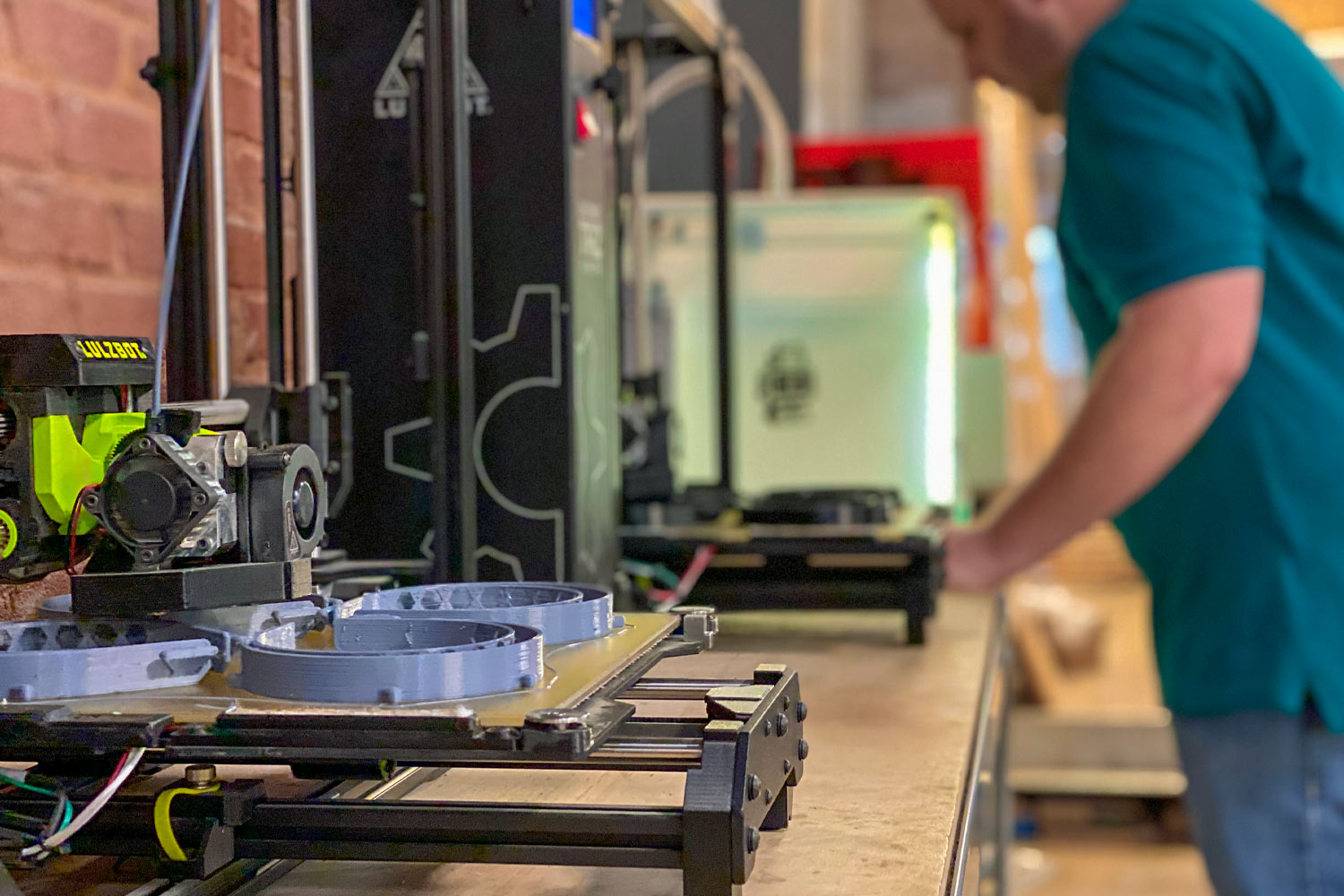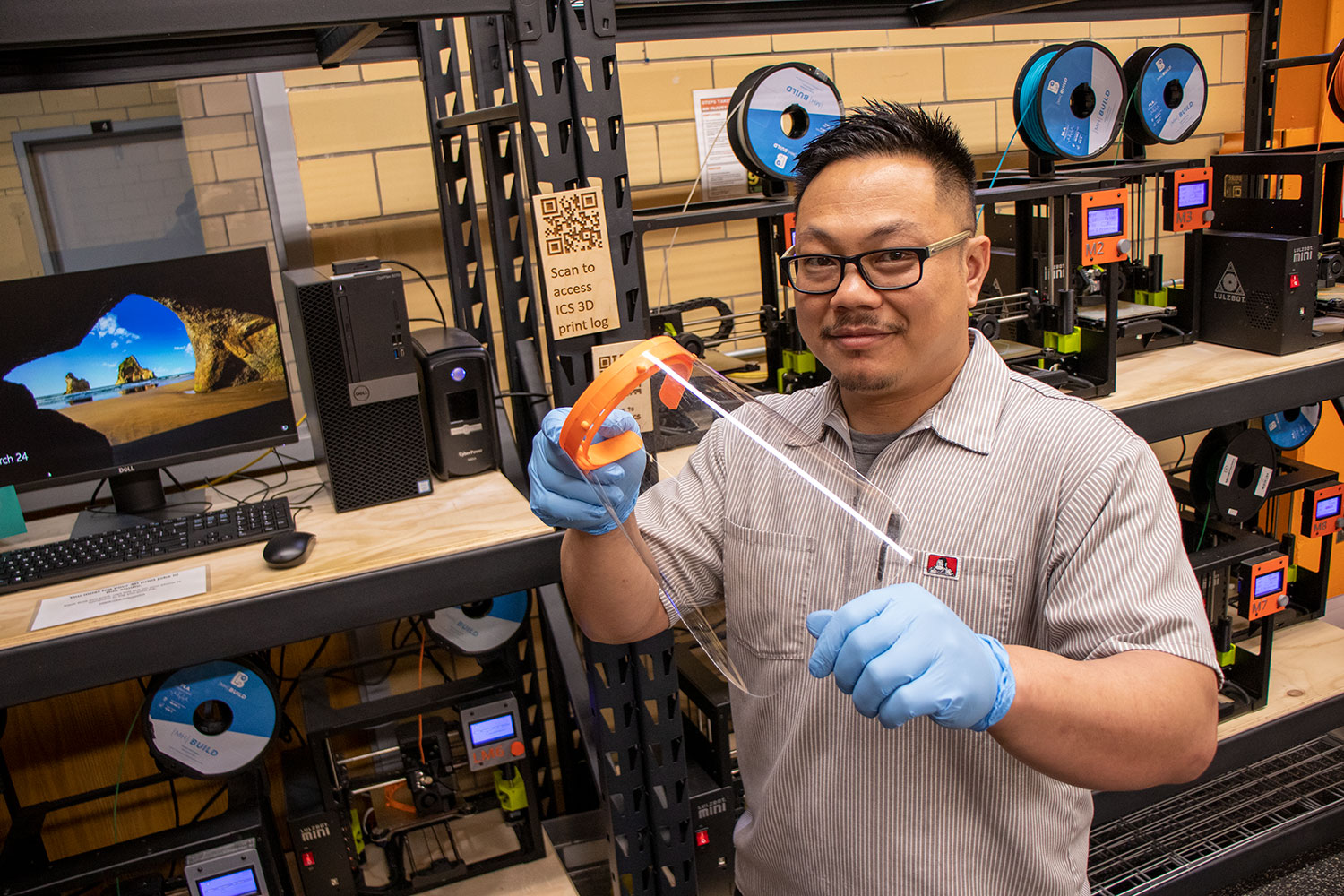One of the things that sets UT apart is a belief in the Volunteer Spirit. The notion that, when times are their toughest, UT students, faculty, staff, and alumni will rise to meet the occasion.
It shone through in March, when the coronavirus brought many aspects of life around the world to a halt, including the end of in-person classes at UT for the semester.
Mike Krause, executive director of the Tennessee Higher Education Commission, challenged public universities across the state to help meet the demand for face shields. Schools responded in a big way, producing 10,000 headbands for the shields through the use of 3D printing in just the first three days. Since fabrication began, UT has printed more than 5,000 (and counting).
At UT, the Tickle College of Engineering, College of Architecture and Design, and College of Arts and Sciences are all contributing to the cause.
“Seeing the way that UT, ORNL, and partners came together was unprecedented in both timing and result,” said UT–ORNL Governor’s Chair for Advanced Composites Manufacturing Uday Vaidya, who is coordinating the continuing effort.
Fabrication ramped up at a number of campus locations, including Vaidya’s space at the Fibers and Composites Manufacturing Facility and Engineering Annex (FCMF), the college’s Innovation and Collaboration Studio, maker labs in Dougherty and Ferris, and the College of Architecture and Design’s Fab Lab. Some students, unable to return to campus after Spring Break, even started printing at home with their own machines.

For his part, Tom Duong, staff supervisor at the ICS, got a head start on producing the headbands through a partnership with Helpful Engineering, which itself was created in response to the virus as a way for engineers to help combat it.
He said that on the initial run, people worked through the night to produce the gear, something that was replicated elsewhere, according to Interim Vice Chancellor for Research Matthew Mench.
“People took printers home with them so that they could work on the headbands every available minute,” Mench said. “Helping the community and the state under a tight deadline is the absolute embodiment of the Volunteer Spirt.”
From engineering, other faculty members contributing time and resources to the cause include Doug Aaron, Brett Compton, Chad Duty, Caleb Rucker, and Matthew Young of MABE; Chris Wetteland of MSE; and FCMF’s Vanina Ghossein. More than a dozen students are also aiding the effort, led by Alex Stiles, a doctoral student in the Bredesen Center for Interdisciplinary Research and Graduate Education.
While the fight against Covid-19 continues in hospitals and medical facilities across the world, the efforts being undertaken by those at UT show they aren’t fighting it alone, and our Volunteer Spirit is with them.
People took printers home with them so that they could work on the headbands every available minute. Helping the community and the state under a tight deadline is the absolute embodiment of the Volunteer Spirt.”
The most recent efforts being coordinated by Vaidya have focused on meeting local community needs directly requested by health care professionals as well as working with colleagues at ORNL on a reusable mask design that can be sterilized with a replaceable filter.
